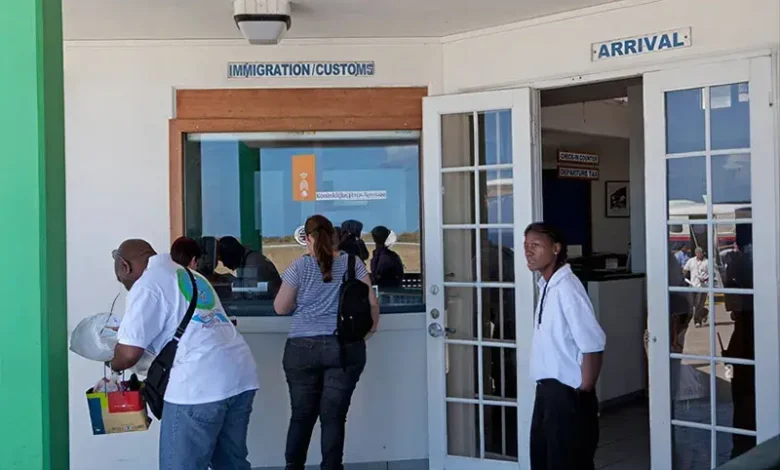CSME: Implications for Dominica

The CARICOM Single Market and Economy (CSME) is a pivotal initiative by the Caribbean Community (CARICOM), aiming to integrate member states into a unified economic space. This framework facilitates the free movement of goods, services, capital, and people, enhancing regional competitiveness and economic growth. For Dominica, active participation in the CSME presents opportunities and challenges that warrant comprehensive exploration.
Dominica’s Integration into the CSME
Dominica has been a committed member of CARICOM since its inception, aligning its national policies with regional integration objectives. The country’s integration into the CSME involves several key components:
Free Movement of Goods and Services
By eliminating tariffs and non-tariff barriers, Dominica gains access to a broader market for its products and services. This access is particularly beneficial for Dominica’s agricultural exports, such as bananas and citrus fruits, allowing local producers to reach consumers across the CARICOM region.
Right of Establishment and Movement of People
The CSME provisions enable Dominican entrepreneurs and professionals to establish businesses and seek employment in other member states without restrictive barriers. This mobility fosters skill development and knowledge transfer, contributing to the nation’s human resource development.
Free Movement of Capital
Dominica’s financial sector stands to benefit from the unrestricted flow of capital within the CSME. Investors can diversify their portfolios, and businesses can access funding opportunities across member states, enhancing economic resilience.
Current Situation and Progress
As of 2023, CARICOM Heads of Government have made significant strides toward deepening integration. A landmark decision was taken to implement full free movement for all CARICOM nationals by March 2024, expanding beyond the existing categories of skilled nationals. This development is poised to transform labor mobility and economic collaboration within the region.
In alignment with this regional agenda, Dominica’s Ministry of Foreign Affairs, in collaboration with the CARICOM Secretariat, has been formulating a national CSME communication plan. This initiative aims to educate and prepare citizens and businesses for the impending changes, ensuring they are well-positioned to capitalize on new opportunities.
Historical Context and Lessons Learned
Dominica’s journey within CARICOM has been marked by efforts to harmonize economic policies and reduce trade barriers. Past experiences offer valuable insights:
Agricultural Trade
Historically, Dominica’s economy has been heavily reliant on agriculture, with bananas serving as a primary export. Participation in regional trade agreements under CARICOM provided preferential access to markets, bolstering the agricultural sector. However, challenges such as susceptibility to natural disasters and global market fluctuations highlighted the need for economic diversification.
Economic Diversification
In response to these challenges, Dominica has pursued diversification strategies, including the development of its tourism sector and offshore financial services. These efforts have been facilitated by regional cooperation, enabling the country to attract investments and expand its economic base.
Opportunities and Challenges Ahead
The full implementation of the CSME presents a spectrum of opportunities and challenges for Dominica:
Opportunities
- Market Expansion: Access to a larger regional market can stimulate local industries and attract foreign investment.
- Labor Mobility: The ability for citizens to work freely across member states can reduce unemployment and enhance skill acquisition.
- Investment Flows: Free movement of capital can lead to increased funding for infrastructure and business development.
Challenges
- Economic Disparities: Variations in economic development among member states may lead to unequal benefits, necessitating policies to ensure equitable growth.
- Regulatory Harmonization: Aligning national laws and regulations with regional standards requires legislative adjustments and administrative capacity building.
- Public Awareness: Educating citizens and businesses about the implications of the CSME is crucial for successful integration.
Strategic Imperatives for Dominica
To navigate the complexities of deeper integration within the CSME, Dominica may consider the following strategies:
- Policy Alignment: Harmonizing national policies with CSME objectives ensures coherence in trade, investment, and labor practices. This alignment facilitates smoother interactions with regional partners and enhances compliance with agreed-upon standards.
- Capacity Building: Investing in human capital development equips the workforce with skills to compete effectively in the regional market. This includes vocational training, educational programs, and professional development initiatives tailored to emerging economic sectors.
- Infrastructure Development: Enhancing physical and digital infrastructure supports increased economic activity and connectivity. Improvements in transportation, telecommunications, and energy supply are critical to meeting the demands of a more integrated market.
- Stakeholder Engagement: Collaborating with the private sector, civil society, and educational institutions fosters a collective approach to addressing integration challenges. Engagement initiatives can include public consultations, workshops, and partnerships that leverage diverse perspectives and expertise.
The Road Ahead for Dominica in the CSME
Dominica’s active participation in the CARICOM Single Market and Economy signifies a commitment to regional integration as a pathway to sustainable development. While challenges exist, the potential benefits of increased market access, labor mobility, and investment opportunities are substantial. By strategically aligning policies, building capacity, and engaging stakeholders, Dominica can position itself to thrive within the integrated Caribbean economy.




